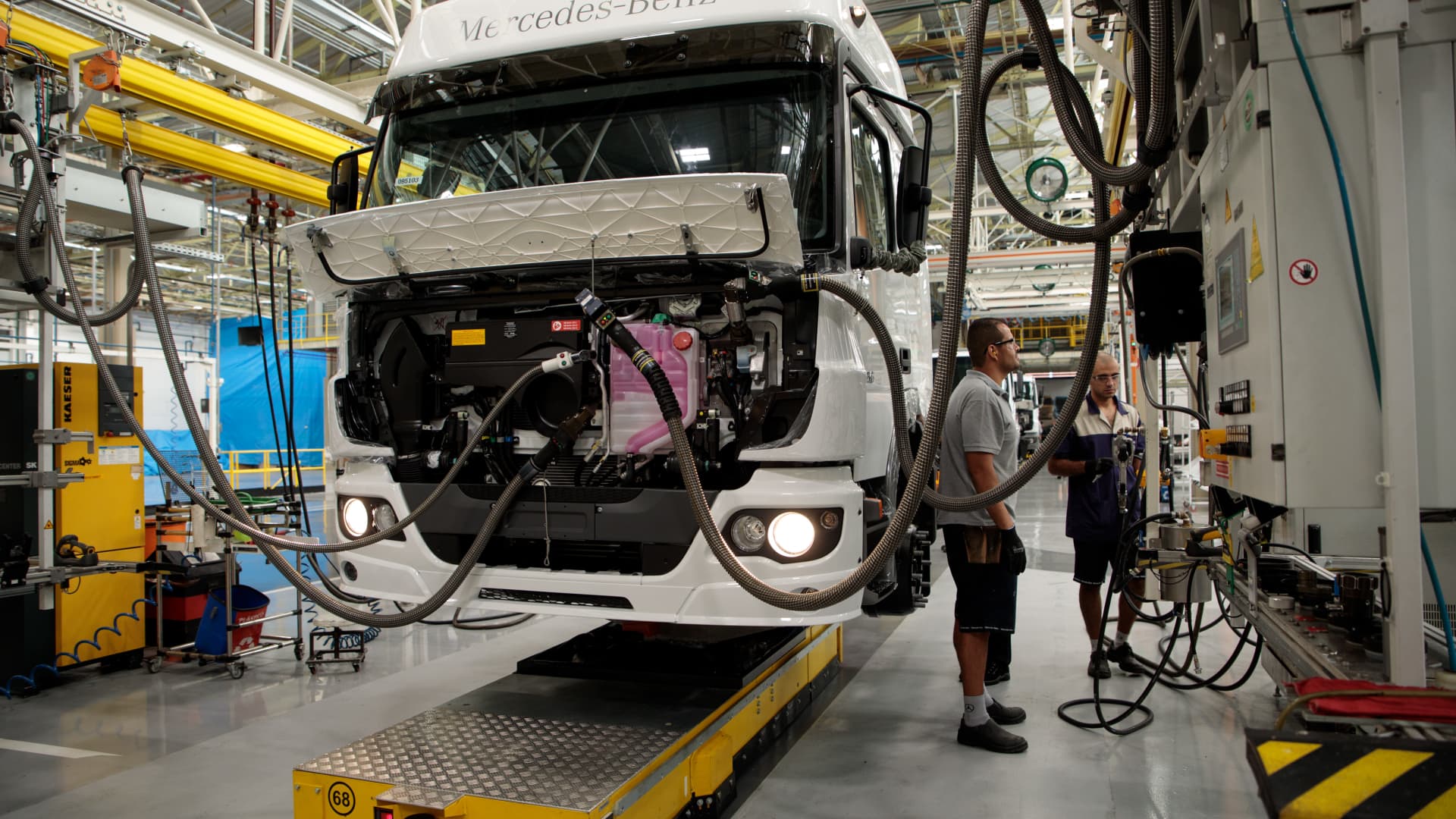Intel revenue and profit drop slightly from last year

Pat Gelsinger, CEO of Intel, speaks in Santa Monica, Calif., on March 9, 2017, in a photo taken when he was CEO of VMware.
Patrick T. Fallon | Bloomberg | Getty Images
Intel sales were essentially flat and profit dropped in the first quarter of 2021 in CEO Pat Gelsinger’s first earnings report at the helm.
Intel’s earnings per share were significantly higher than analyst estimates and the company’s own forecast, but Intel stock was down more than 3% in extended trading. Sales were also above analyst estimates.
Here’s how Intel did versus Refinitiv consensus estimates:
- Earnings per share (EPS): $1.39 vs $1.15 (adjusted) expected, down 1% year over year
- Revenue: $18.57 billion vs $17.90 billion (adjusted) expected, flat year over year
For Intel’s second fiscal quarter, it expects $17.8 billion in revenue, slightly higher than analyst expectations of $17.55 billion. The company missed analyst estimates for its second-quarter EPS as analysts expected $1.09 and Intel is guiding for $1.05 as it spends to build additional manufacturing capability.
Gelsinger, who took over in February, announced earlier this month that Intel would invest $20 billion in new microchip manufacturing plants and announced a plan to become a contract chip manufacturer, or a foundry, which would make other company’s chips, in addition to its own chips.
“This is a pivotal year for Intel,” Gelsinger said in a statement.
But that plan will take years to come to completion. In the quarter ended in March, Intel quarterly sales and quarterly earnings were essentially flat compared with the same period last year, even as demand for microchips skyrocketed around the world.
PC sales had their best quarter in years in the first quarter, according to several estimates. They boosted the chipmaker: Intel said that sales of chips for notebook laptops were a record for the company having risen 54% year over year and that total PC volumes were up 38% in the quarter.
In the year-ago quarter, Intel reported $9.78 billion in sales in its client computing group, which includes PC chips versus $10.61 billion in the most recent quarter. The group comprises more than 59% of Intel’s revenue.
However, many of those laptops and desktops are low-cost Chromebooks which use less expensive chips. Apple, an Intel customer, also is increasingly using its own chips, instead of Intel’s, for its Mac line of PCs. Intel CFO George Davis told analysts that Intel’s performance in PCs was despite sales to Apple “ramping down.”
Intel also sells high-performance chips for data centers, and sales were elevated last year as companies bulked up their cloud operations as employees worked from home. A year ago, Intel reported $6.99 billion in revenue in its data center group versus $5.56 billion this quarter.
Mobileye, Intel’s autonomous vehicle subsidiary, reported $377 million in revenue, which was up 48% year-over-year.
Intel has seen setbacks in making its most advanced chips, which use a manufacturing process called 7-nanometers. It also faces increased competition from companies like Nvidia, which announced its own data center chip this year, and AMD, which has boasted that it has passed Intel in some key computing performance metrics.
Gelsinger’s plan to become a foundry and increase manufacturing in the U.S. is not going to be cheap. Intel said it planned to spend between $19 billion and $20 billion on capital expenditures in 2021.
Earlier this month, Intel said it was expecting earnings of $4 per share and revenue of $72 billion for the full year of 2021. Intel raised that guidance on Thursday to earnings of $4.60 per share as well as sales guidance to $72.5 billion.




